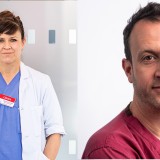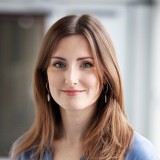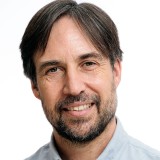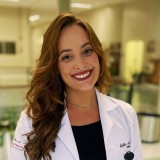Young GI Blog
My patients’ smiling faces are my best motivation to work as a gastroenterologist
January 22, 2024 | Vira Kulaiets

Vira Kulaiets is a gastroenterologist and associate professor of internal medicine at Ivano-Frankivsk National Medical University, Ukraine.
Could you tell us a bit about yourself, and why you chose gastroenterology as your specialty?
I started my clinical career early at the medical university as a nurse in the gastroenterology department of the regional hospital. I spent a lot of time talking to patients and making medical records. I took care of patients with advanced chronic diseases with limited resources, however, companionship and emotional support were unlimited then. I enjoyed my work so much, especially when I saw the smiling faces of my patients. Just then I decided without a doubt to continue my career in gastroenterology. I confidently began specializing in gastroenterology and endoscopy and started my research on functional dyspepsia.
Your doctoral research concerns the study of functional dyspepsia. It is known nowadays, that stress affects visceral sensitivity and could aggravate symptoms in functional dyspepsia. Have you observed a significant increase in the number of patients with functional GI disorders in Ukraine during the last 2 years?
Nowadays, functional dyspepsia is indeed one of the most common GI pathologies. Furthermore, in the last two years, we have observed a significant increase in the number of patients with functional GI disorders in Ukraine. Of course, it is connected with overwhelming stress and socioeconomic changes caused by war. People change their life habits in such circumstances and not in a better way. From our observations, dyspepsia is a cause of more than 40% of visits to a gastroenterologist, and it is functional in most of patients. Management of these patients is a huge challenge due to the comorbidity of neurological and mental. It is often resistant to standard therapy and requires prescribing a combination of several drugs, neuromodulators (mostly antidepressants), and psychotherapy.
You have just visited UEG Week in Copenhagen. What are your impressions? What role does UEG Week play in your career?
UEG Week Copenhagen 2023 was an exciting European medical event that left me with positive impressions and a desire to move further at acquiring new clinical skills based on novel practices. Sessions devoted to the analysis of common clinical mistakes, nutrition issues, and modern visualization methods took my breath away. I made a lot of notes then, and now I try to implement the best practices at my place. I realized that it is necessary to develop professionally all the time, and international experience can contribute to the process enormously.
What advice can you give beginners in medical research, especially if resources are scarce?
I recommend that young researchers do a lot of scientific surfing on the web, analyze articles of the leading world experts in detail, and don’t be afraid to ask them for advice. Pay more attention to soft skills and communicate with others. You probably will find a nice team. It is useful to try My Connect as a novel professional networking tool. Today, many international opportunities could help beginners in their research. Just look for them and be persistent.




Please log in with your myUEG account to post comments.